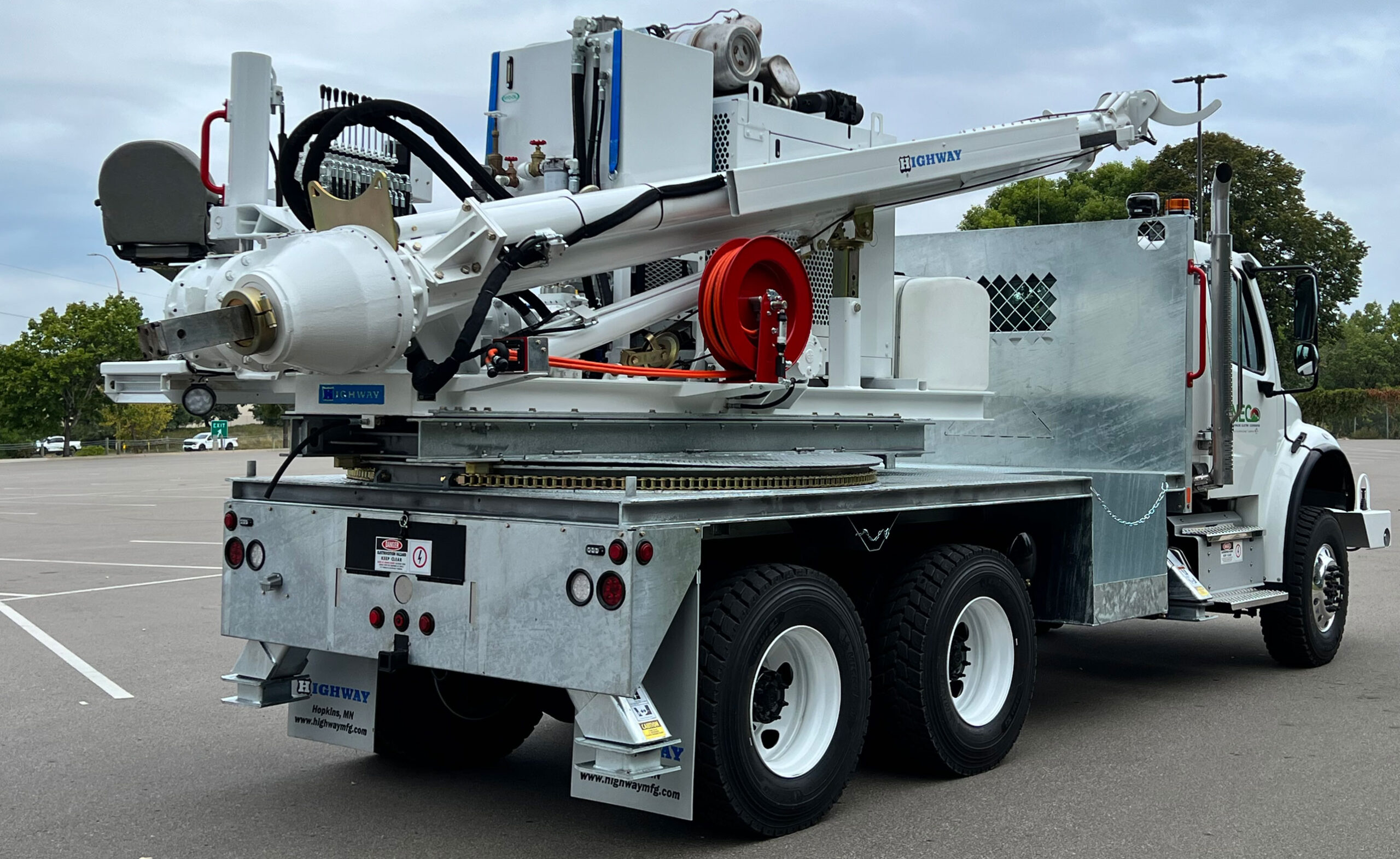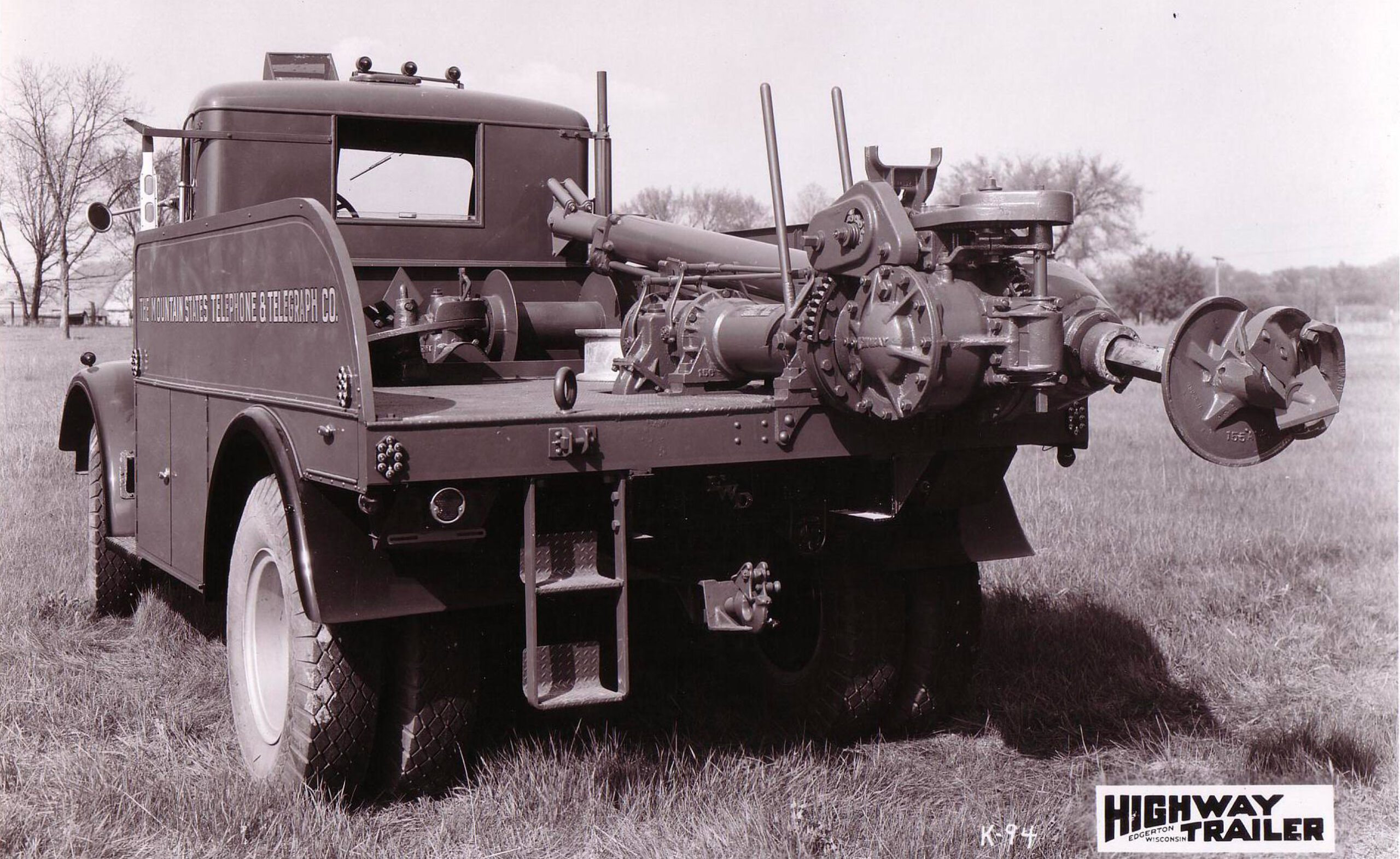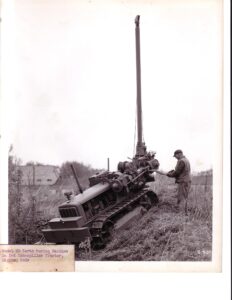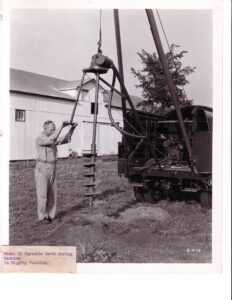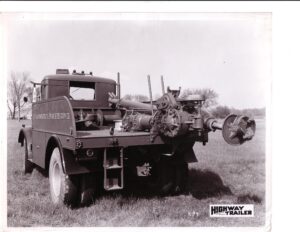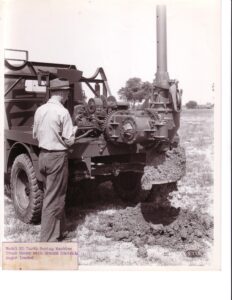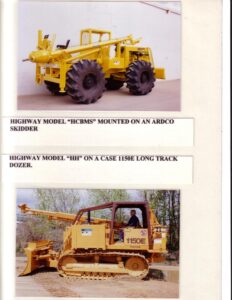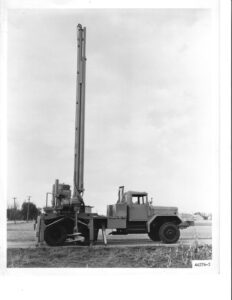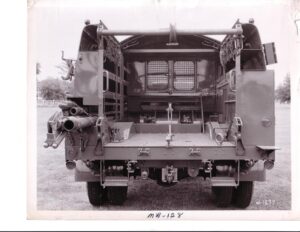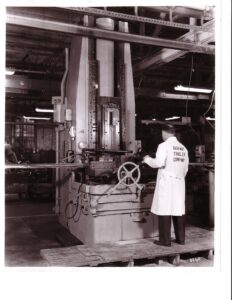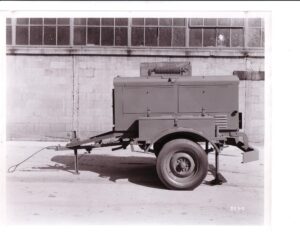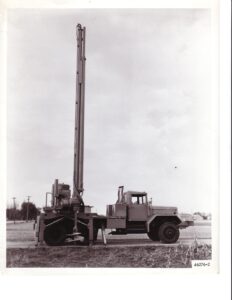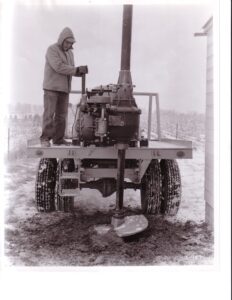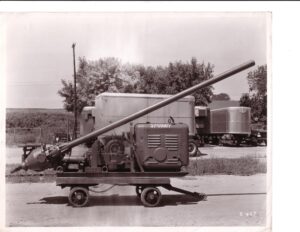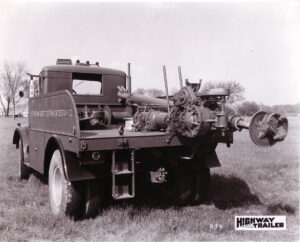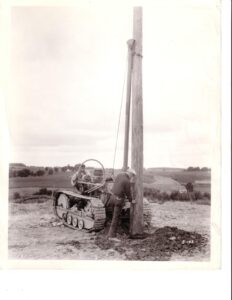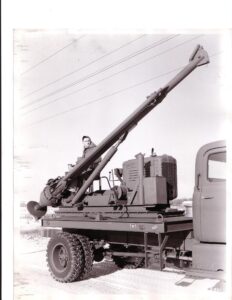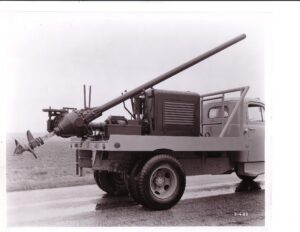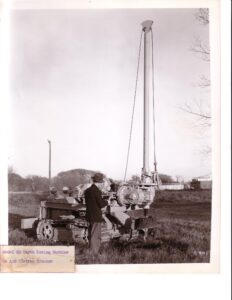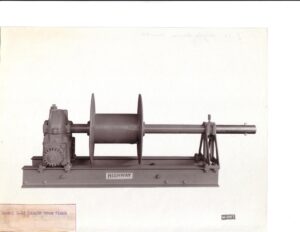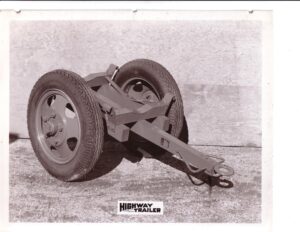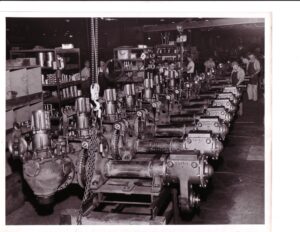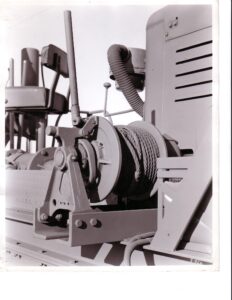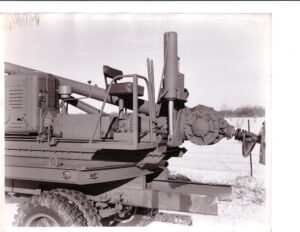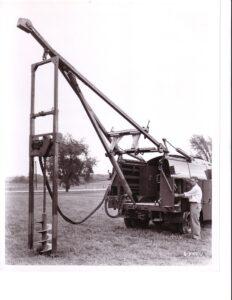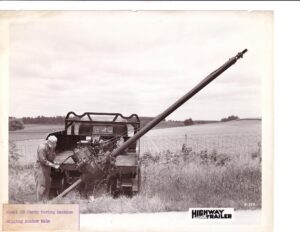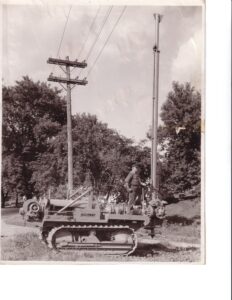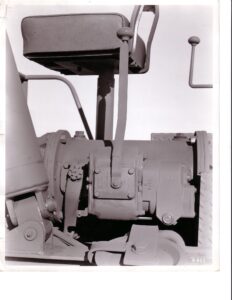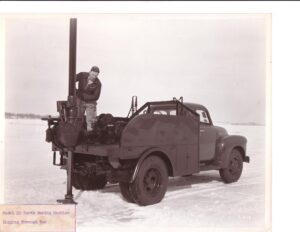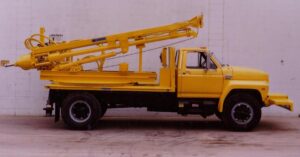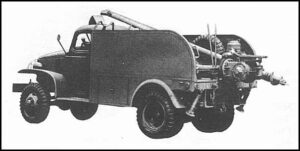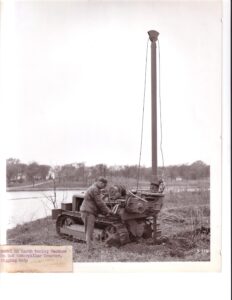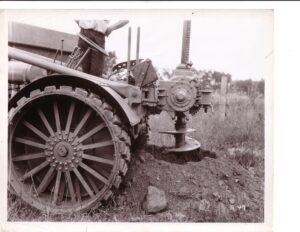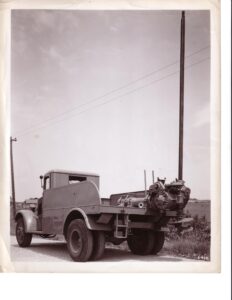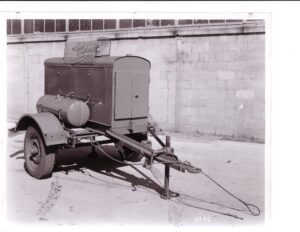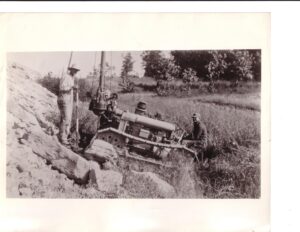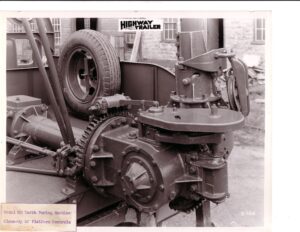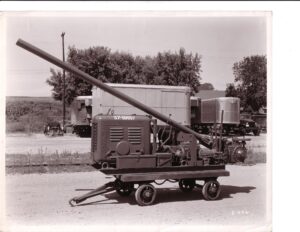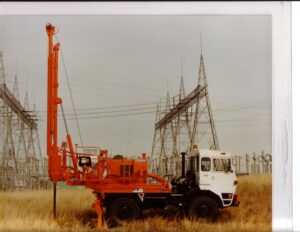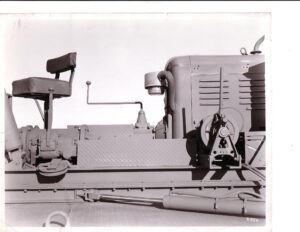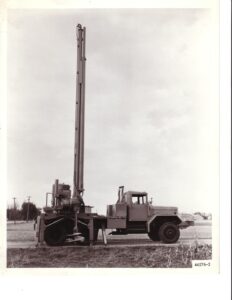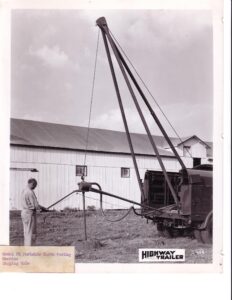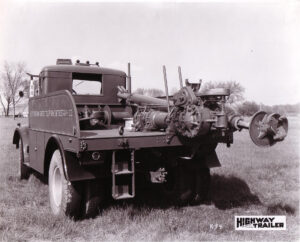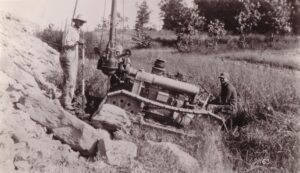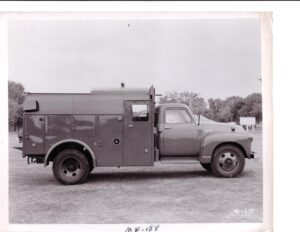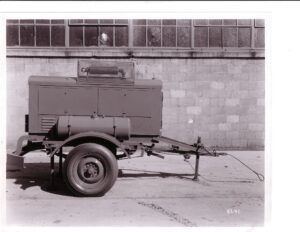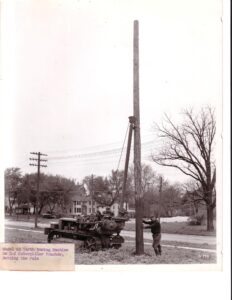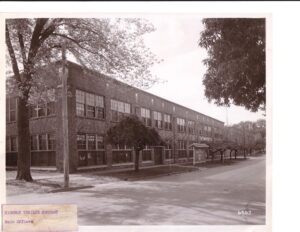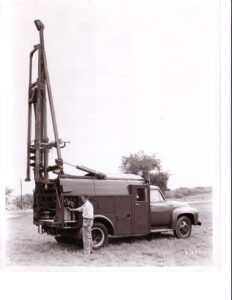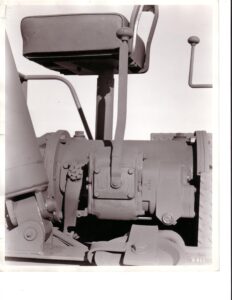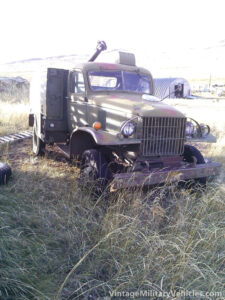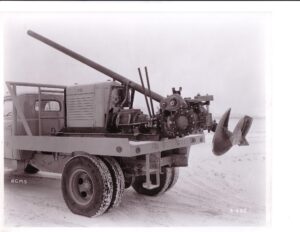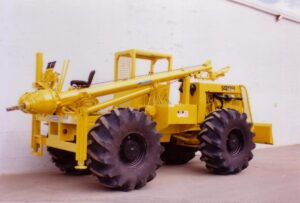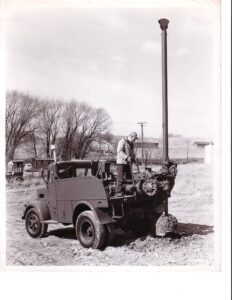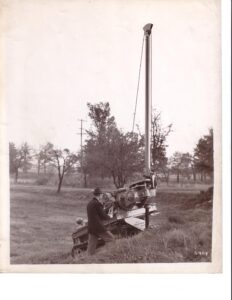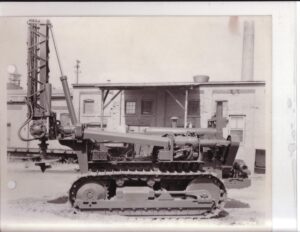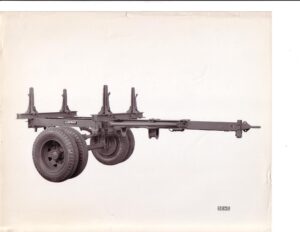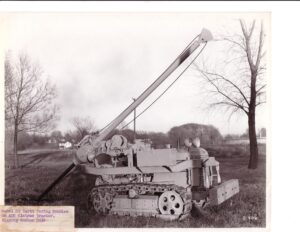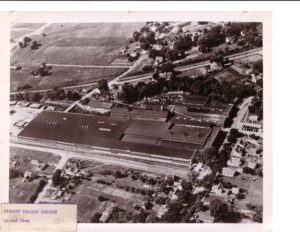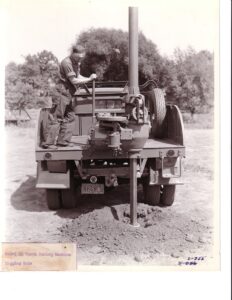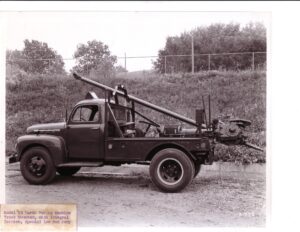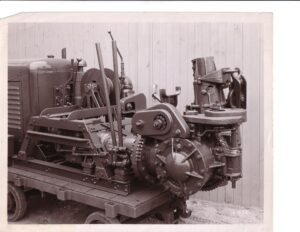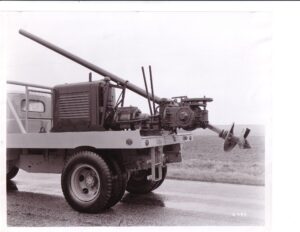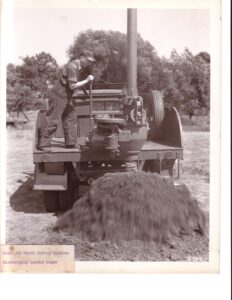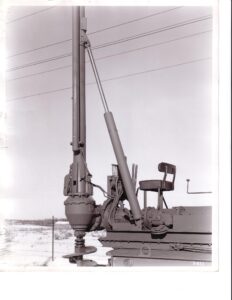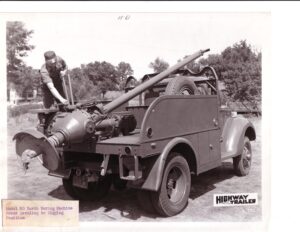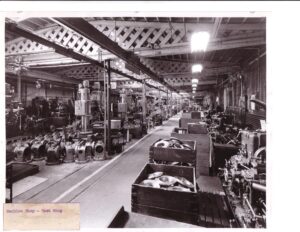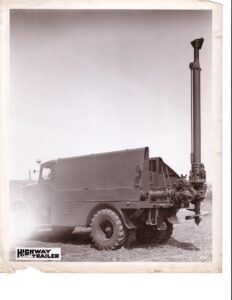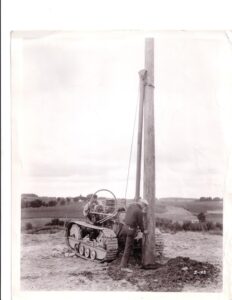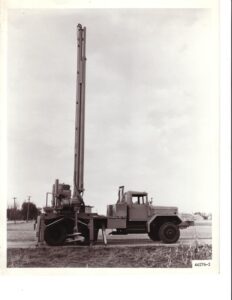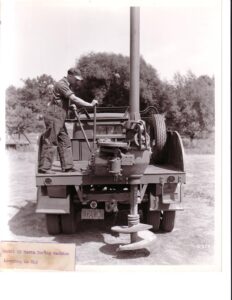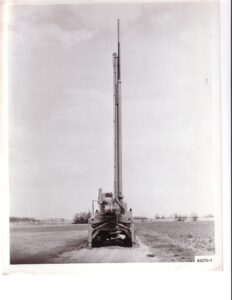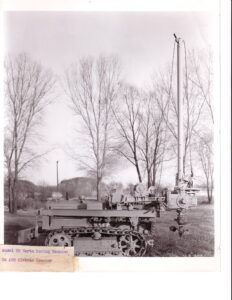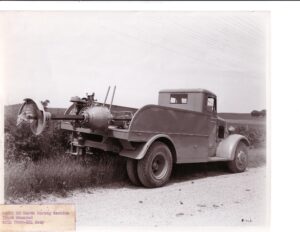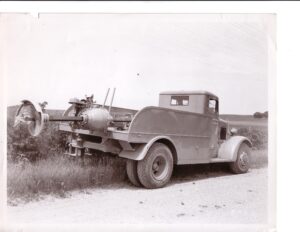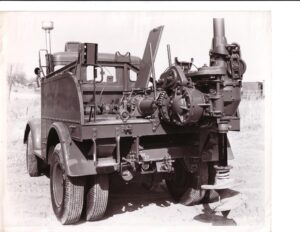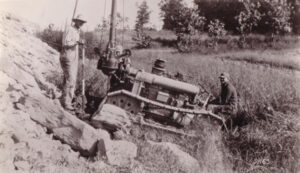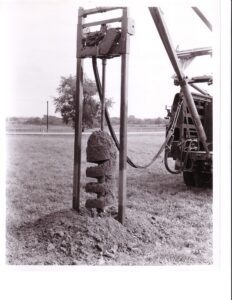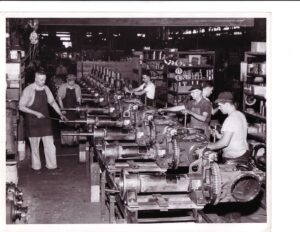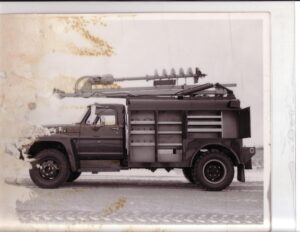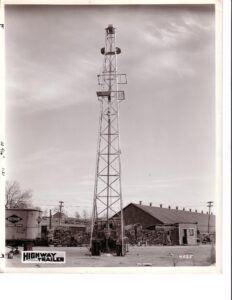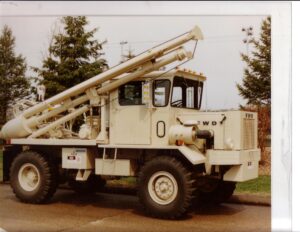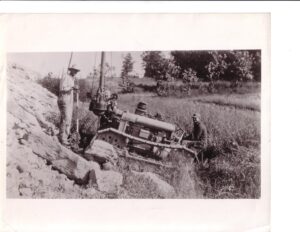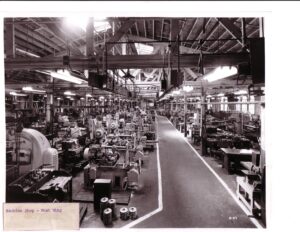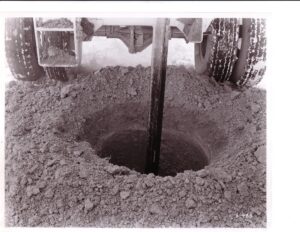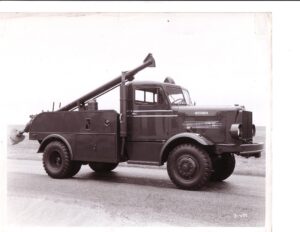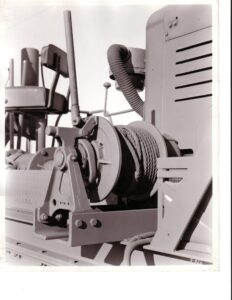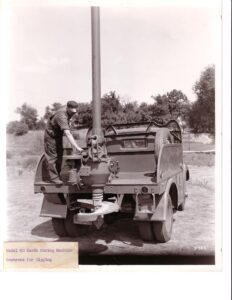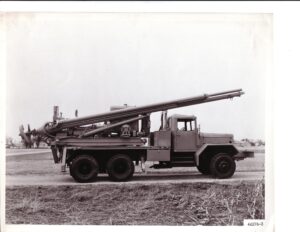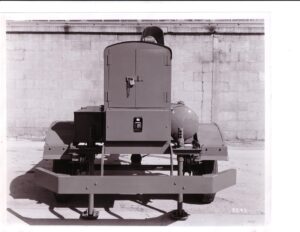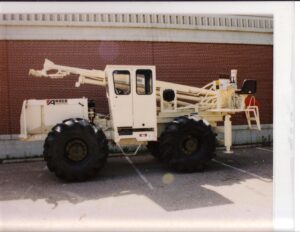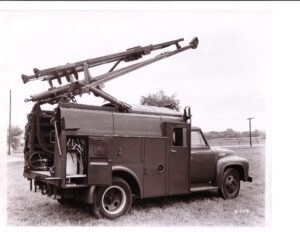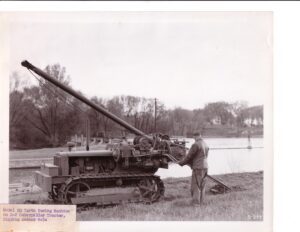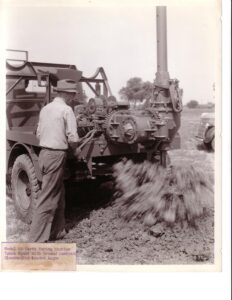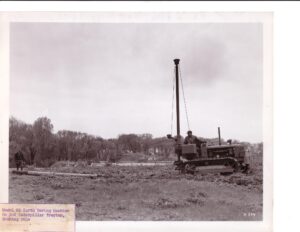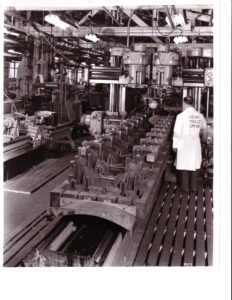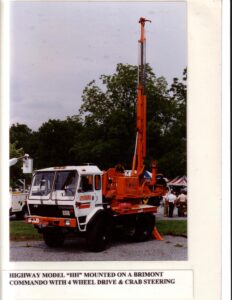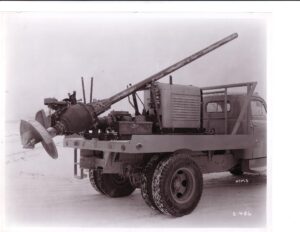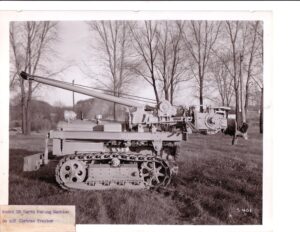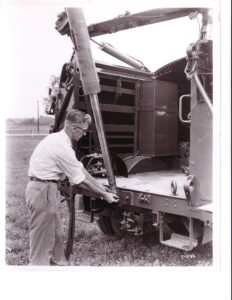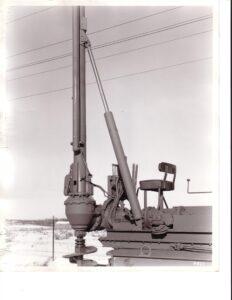Helping You Dig Deeper Since 1926
For nearly a century, Highway Manufacturing has been in the dirt — designing and building the machines that literally helped build America’s infrastructure.
From our earliest days crafting heavy-duty mechanical diggers in the post-war boom to today’s custom-built foundation drills, we’ve earned a reputation for equipment that just doesn’t quit.
Many of our machines from the 1960s and ’70s are still on the job today, proof that when we say “built to last,” we mean decades. Through every era, one thing has never changed: our commitment to simple, reliable, field-serviceable designs that get the work done, no matter the ground you’re in.
Highway Mfg Timeline
-
1926 – Highway Manufacturing is established in Edgerton, Wisconsin, as part of the Highway Trailer Company. Early on, they specialize in pressure diggers and heavy-duty utility equipment.
-
1940s – During World War II, Highway contributes to the war effort by supplying earth augers and utility trailers to the U.S. military.
-
1960s–1980s – Operates under private family ownership, expanding its lineup of mechanical pressure diggers.
-
1969 – The Highway Trailer Corporation is acquired by the Dorsey Trailer Company, which continues producing Highway’s equipment.
-
1987 – ABM Equipment & Supply purchases Highway Manufacturing from Dorsey. This marks a new era focused on innovation, support, and expanding product lines to meet modern jobsite demands.
-
Today – Highway designs and manufactures a full line of mechanical and hydraulic pressure diggers and foundation drills. With seven current models, digging depths up to 60 feet, and auger diameters up to 6 feet, Highway equipment is trusted across electric utility, co-op, drilling, and contractor markets.
Highway Units Now & Then
The work was tough, the equipment was tougher
Highway Manufacturing opened its doors in 1926, just as America was pushing power lines into rural communities and carving highways through open country. From the start, Highway built machines that were heavy, simple, and field-repairable — built for crews who worked in mud, rock, frost, and heat without a break in the schedule.
When World War II hit, the country’s manufacturing muscle shifted toward the war effort, and Highway was no exception. The same skills and steel that went into building rugged utility equipment were turned toward military production, supplying the tools and components needed to keep the Allied forces moving. That wartime experience sharpened the company’s engineering discipline and reinforced the “overbuild it or don’t build it” mindset.
Coming out of the war, America was rebuilding and expanding — and so was Highway. With renewed focus on utility and infrastructure work, the company applied its wartime-honed precision and toughness back to the civilian market. The result was a line of mechanical diggers that set the bar for durability and reliability in the field.
The gold standard for line crews across the country.
By the 1960s, Highway had carved out its place in the utility world with a machine unlike anything else: the mechanical pressure digger. Built to be simple, strong, and easy to service in the field, these units became the gold standard for line crews across the country. Brady recalls that even back then, Highway wasn’t chasing the latest gadget — we were focused on what worked. Solid steel construction, big torque numbers, and straightforward controls meant crews could drill holes in frozen ground, rocky soil, or sticky clay without a hiccup.
The design philosophy was pure Highway: no unnecessary frills, every part easy to get to, and overbuilt where it counted. Many of these 1960s and ’80s mechanical diggers are still out there today — not just as collectors’ pieces, but still working jobs. That kind of longevity wasn’t an accident; it was the result of listening to operators, knowing the job, and building a machine that could take a lifetime of abuse.
Hydraulic pressure diggers joined the lineup.
By the late ’80s and into the ’90s, Highway was evolving — not by chasing trends, but by solving problems crews were running into every day. Hydraulic pressure diggers joined the lineup, giving operators more precision and control without sacrificing the brute strength that made Highway famous. These years saw the rise of true customization, where a customer could walk into the shop with a challenge and leave with a machine built specifically to handle it.
Brady remembers that era as one where “we were building more one-off machines than ever before.” Carriers were adapted, masts modified, controls fine-tuned — whatever it took to make the job easier and safer for the operator. This wasn’t mass production; it was Highway’s brand of low-volume, high-quality craftsmanship.
The foundation laid in the mechanical age paid off here: customers trusted that if Highway tried something new, it was going to be just as tough and reliable as the machines they’d been running for decades. That trust kept crews coming back, and it’s why so many of those ’90s-built machines are still in the dirt today.
Know the work, respect the operator
As Highway moved into the 21st century, the mission stayed the same: build the toughest, most dependable drilling equipment in the field. But the ways we delivered on that promise evolved. The FD Series foundation drills brought Highway’s reputation for brute strength into a new market, blending massive torque and depth capacity with the same operator-friendly design that’s been in our DNA since the beginning.
Customization became more than an option — it became the expectation. Every job site, every soil type, every crew has its own demands, and Highway builds to meet them. Whether it’s adapting a mast for tighter clearances, tweaking controls for better precision, or outfitting a carrier to customer specs, no two units are ever exactly alike.
Today, nearly a century after our founding, Highway equipment still turns up on job sites with 30-, 40-, even 50-year-old diggers running alongside the latest builds. That kind of legacy doesn’t happen by accident — it comes from knowing the work, respecting the operator, and refusing to cut corners. With 100 years behind us and the next century ahead, Highway is still the name crews trust when the job calls for muscle, durability, and a machine that will keep working as long as they do.

